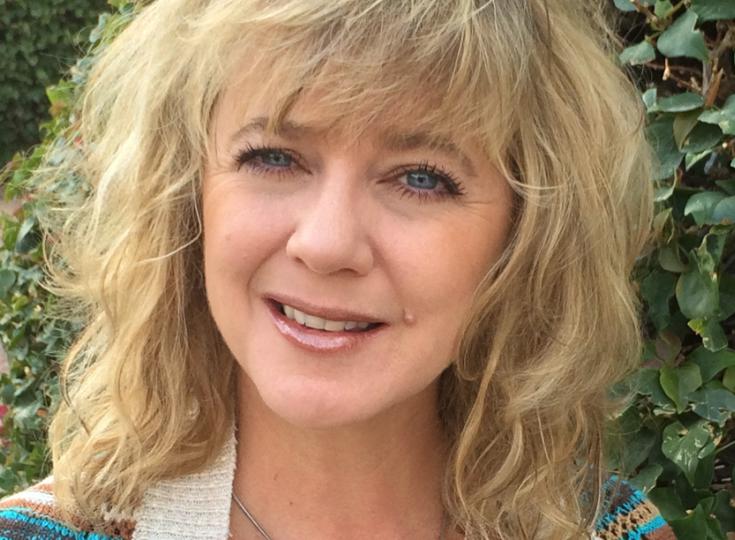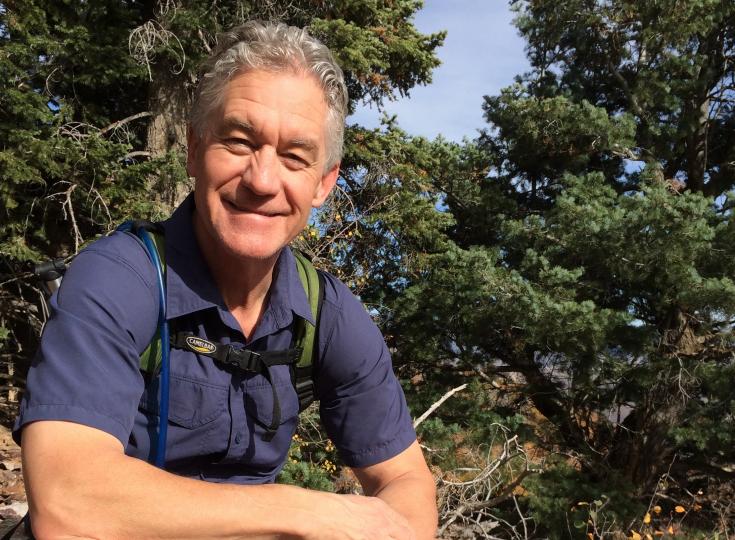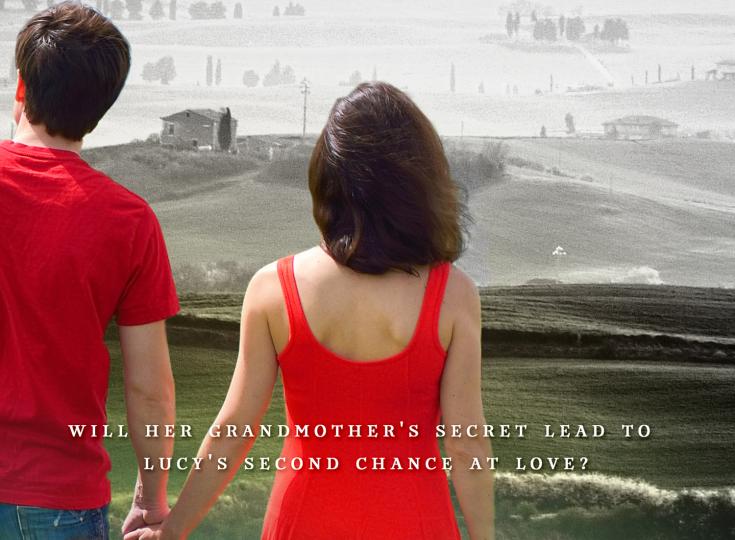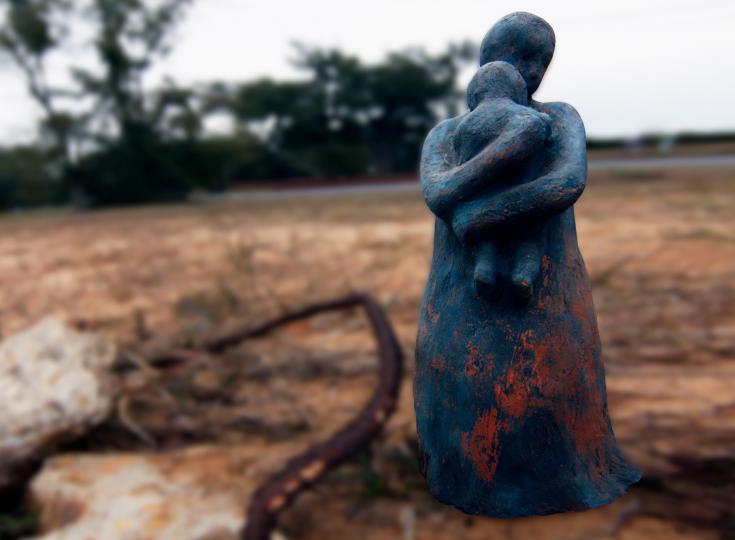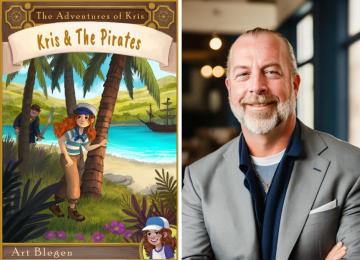Chuck Waldron - Crime, Technothrillers and Conspiracies
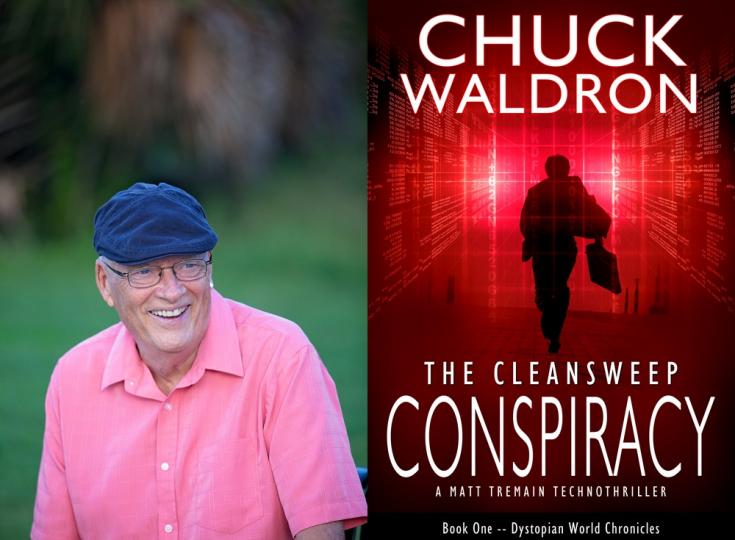
Sitting at his grandfather's lap, listening to stories about notorious gangsters in the local caves of the Ozark Mountains, Chuck Waldron was inspired to start writing his own stories about crime and the human condition. He writes thrillers that keep readers at the edge of their seats, and The Cleansweep Conspiracy is no exception. As our author of the day, Waldron reveals how the G20 Toronto conference inspired this book and talks about his passion for thrillers and his love for the game of poker.
Please give us a short introduction to The Cleansweep Conspiracy
Rioting and unrest bring the city of Toronto to its knees. To restore order and curb the violence, sweeping cuts to personal privacy are imposed to ensure public safety.
To Matt Tremain, it’s an unthinkable trade-off—especially since the investigative blogger knows the truth. Guided by the hand of ruthless billionaire Charles Claussen and his co-conspirators, the riots were triggered to usher in a draconian invasion of privacy—creating an environment directly under the control of the ruthless cabal.
Matt has the information needed to blow Claussen’s plan for Operation CleanSweep out of the water. But Claussen has a city under his control and operatives everywhere. In a place where no one can be trusted, Matt’s options look increasingly—possibly fatally—bleak.
What inspired you to write about a plot to rid the city of “undesirables”?
Inspired by government overreach in planning security for the 2010 G20 Toronto conference, the story is a grim reminder of the danger inherent in sacrificing freedom for security. While the story is completely a figment of my imagination, I could have used many places, but chose to keep it in Toronto. The setting in the original manuscript was a North American fictitious city. Since the inspiration for The CleanSweep Conspiracy was the rioting that took place in Toronto in 2010, I decided to rewrite my novel and let Toronto be the location.
Tell us a bit more about your main character, Matt Tremain. Who is he and what makes him so special?
Not being special is what makes him so. I first saw him with a slight limp. He was nervous and didn’t stand out. I knew he was the character I was looking for. Matt is someone struggling, like most of us. He wants to make a difference, but how? He wasn’t quite up to the discipline needed to stay in school but had smarts. Unlike heroes in novels like Jason Bourne, Matt didn’t have martial arts skills or shooting guns. He wasn’t about to leap from one rooftop to another. He’s just a regular guy who stumbled on information that would change him forever. Needing help, he struggles to make friends. He’s insecure in the company of the women he meets. Underlying all, however, he’s a character who won’t quit, even facing what might be certain death.
Did you know right from the start you were going to make this into a series?
Maybe, but I don’t think so. I’ve enjoyed writing three novels before this, each story standing on its own. Partway through The CleanSweep Conspiracy, I realized how much I like my characters. I began to visualize shadowy people behind the scrim, trying to work themselves into a story. I’m reaching the finish of the second in the series. Now I’m committed to a series, following Jean-Luc Picard’s advice to “make it so.”
How does the next book tie into this one – can they be read as standalones?
I’ve tried to write the second book as a standalone. I make enough reference to Operation Cleansweep that a reader will want to check out book 1. I could go into more detail, but risk shouting out a plot spoiler. I read the Stieg Larsson series out of order, starting with book two. It was standalone, but enough context to send me out to buy book 1 in the series.
Why a technothriller? What fascinates you about the genre?
Matt is pretty tech savvy, but I didn’t want the story to be centered on technology. I would quickly risk exposing my lack of techy facts. I love irony, and it creeps into the novel. I enjoy slipping in old school technology. One character, Stinky, is part of a group that still uses pagers. With pervasive government and corporate surveillance, staying alive sometimes means flying under the technology radar. In some ways, the story is like a canary in the mine. We are almost continuously being scrutinized and how do companies and government agencies know about us, using data extracted with technology.
Your thrillers keep your readers at the edge of their seats. How do you pull this off?
I want readers to care about what happens to Matt, detective Carling and his other friends. I like to build the tension slowly. I like to write about locations and action that mirror what we might see in daily life. In any interesting book I read and the entertaining movies or television programs I watch, setting and music play a role in taking me to the edge of my seat. Okay, books don’t have music, but I can try and write that background and mood to create that edge of the seat experience for readers.
Besides writing, what other secret skills do you have?
Poker. Whether I have the skill or not, I love the game. My favorite quote about the game, “the winner wants to talk, and the loser says shut up and deal.” If you view work as climbing mountains, I used to be a professional mountain climber. Now I do my writing at sea level in Florida.
Do you have any interesting writing habits? Do you write during the day or evening, pen or laptop?
I keep looking for that perfect writing habit. Mornings are my best, but if the characters are talking, there is no clock. Do I use pen or laptop? What writer doesn’t have a pen and notebooks. But thanks to piano lessons and a lucky choice when I was in high school, I type over 80 words per minute. I am as one with my keyboard.
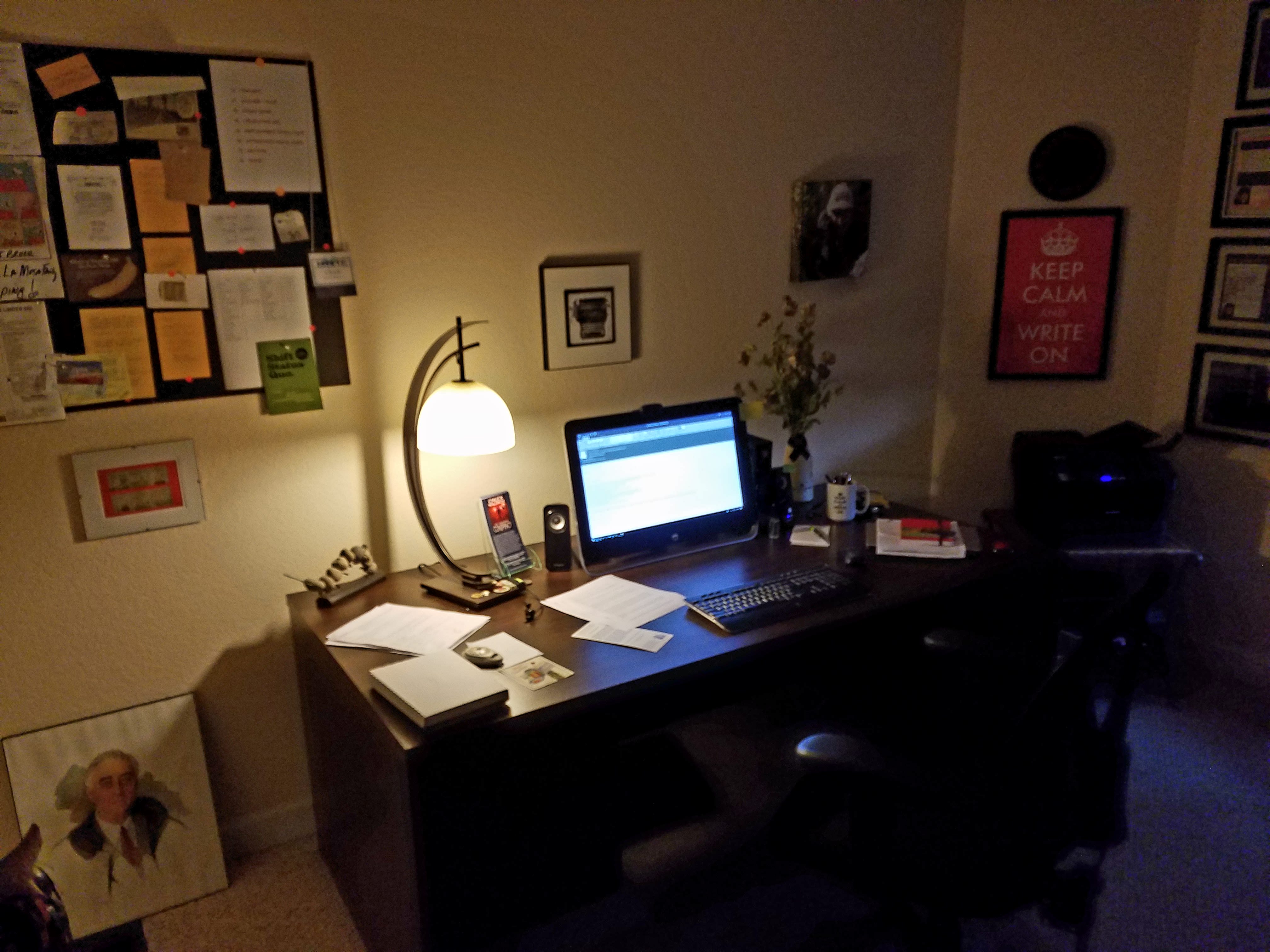
Do you plot out your books before you start writing or do some of the twists just “happen” as you write?
I start out every novel with post-it notes neatly outlining my story from start to finish. I do this so I can have a good laugh at the end, when the book looks nothing like the papers on the bulletin board. Like other writers I have experienced starting a chapter knowing how it will end, only to have my character do something completely different. How does that happen? When it does, I don’t question, I just accept.
You create characters that are very believable. How do you make them so relatable?
I observe, looking for the things in people that make them significant. Then, I take that and give those characteristics to my people. Even the antagonist, Claussen has qualities to make him someone you admire, or might want to meet. That requires a real stretch of my imagination, given what he is like under the surface.
How long on average does it take you to write a book?
The draft doesn’t take long. The editing and rewriting take the longest for me. Those two things are sweaty and unfun – if I can use that as a word. The CleanSweep Conspiracy has gone through three versions. I guess there really is no average.
What are you working on right now?
I have a working title for book two, Conspiracy Disclosed: The Deception of Revenge. As soon as the holiday marketing season is over, I’m writing full time, with a target release of summer 2017.
Where can our readers discover more of your work or interact with you?
Readers, please let me know what you think. I love readers. You are the real judge of my writing. I’m elated when someone tells me they like my stories. I also value the critics. I pay close attention to criticism. It’s dangerous to ignore it. Who likes to make the same mistake twice … or more?
There’s a place on my website www.chuckwaldronauthor.com to leave a message. I respond to each comment received. Better yet, send me an email [email protected]. I answer every email from a reader.
